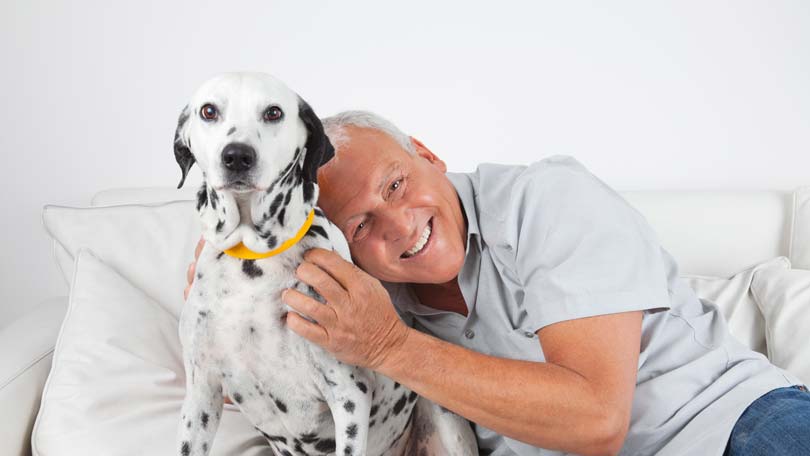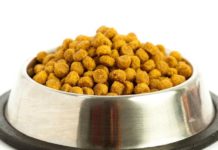
Some dogs are very attached to their owner, and they become stressed when their beloved master is away. This anxiety can cause them to go off their food. If your dog does this, it can take the shine off your trip away because you’re worried about your canine best friend.
This behavior is caused by anxiety, so to manage it, you need to reduce that anxiety. There are several ways you can do that, but keep in mind your dog may not respond fully. Some methods will also be easier for the person looking after him than others.
Choice of Food
If your dog is refusing his usual food and his carer is concerned about whether he’s starting to lose condition, they may want to offer something more palatable. This may be enough to encourage him to at least eat a few mouthfuls. In the short term it’s not important if his diet isn’t nutritionally balanced; the important thing is getting him to actually eat.
- Baby food is popular with dogs because it is usually very tasty and easy to lick up. Try a few different varieties such as meat, rice or custard to see if your dog has a preference.
- Lean chicken or beef, gently cooked, is hard for any dog to refuse. The main disadvantage of this type of food is the cost; feeding a large dog like this for a week or two will have a big impact on the budget!
- Your veterinarian can supply a prescription food formulated specifically for dogs that are recovering from illness. This may be useful even though your dog isn’t unwell, because it is very digestible and contains high levels of nutrients. Even if he doesn’t eat much, he’ll be taking in a reasonable amount of energy, vitamins and minerals.
- Other things that can help are warming the food slightly or adding some broth or stock to give it more flavor.
Pheromones
Dog appeasing pheromone is a chemical that is produced by female dogs as they feed their puppies. It is designed to calm and relax the puppies, and a synthetic form of the pheromone has been successfully used to treat anxiety related disorders in adult dogs.
The pheromone can be sprayed on a bandana that your dog wears around his neck. Alternatively, plug in a dog appeasing pheromone diffuser into a power point in the room where your dog will spend most of his time. Many boarding facilities are spraying dog appeasing pheromone in their kennel areas to help their guests relax while they are there.
Behavior Modification
Sometimes increasing the amount of time your dog spends doing something enjoyable can have a positive effect on anxiety related behaviors.
Examples include grooming or even the method known as Tellington Touch, which is a type of gentle massage that will help him to relax and build more of a rapport with his carer. Playtime will also help, as will taking him for more frequent walks.
If possible, increase the intensity of your dog’s exercise by making him walk faster, or even taking him for a jog. This has been shown to cause the release of endorphins, giving him the canine equivalent of the “runner’s high”. It will also burn up more calories and hopefully make him hungrier.
Using Drugs to Induce Eating
Valium (diazepam) can be very useful in reducing anxiety and stimulating the appetite in dogs. Xanax (alprazolam) is also commonly prescribed to treat canine anxiety.
Avanza (mirtazapine) is a human anti-depressant that has a very positive effect on a dog’s appetite.
Sometimes using one of these drugs in combination with dog appeasing pheromone is enough to get a stressed dog eating.
It’s important that you don’t use any medication on your dog without checking with your veterinarian first.
Is Your Dog Attention Seeking?
If your dog isn’t eating, it’s very likely that both you and his carer will be fussing over him, offering him special foods and watching him closely to see if he eats at all. This can be very rewarding for him, and some dogs will quickly learn that if they don’t eat, they get even more attention.
To make sure that your dog isn’t doing this, put him in another room with his bowl of food, and leave him there for half an hour. If he still doesn’t eat, take him out and try again.
It’s understandable that you’d be worried about your dog not eating when you’re away, but it’s safe to say that a normal healthy dog won’t let themselves starve while food is available. Also, dogs can go without food for a few days without any ill effects as long as they have water.
Start by trying some of these techniques when you’re away just for a day or two, so you can find out what works best for your dog. Then you’ll be able to leave him for longer without worrying about how much he is eating.





